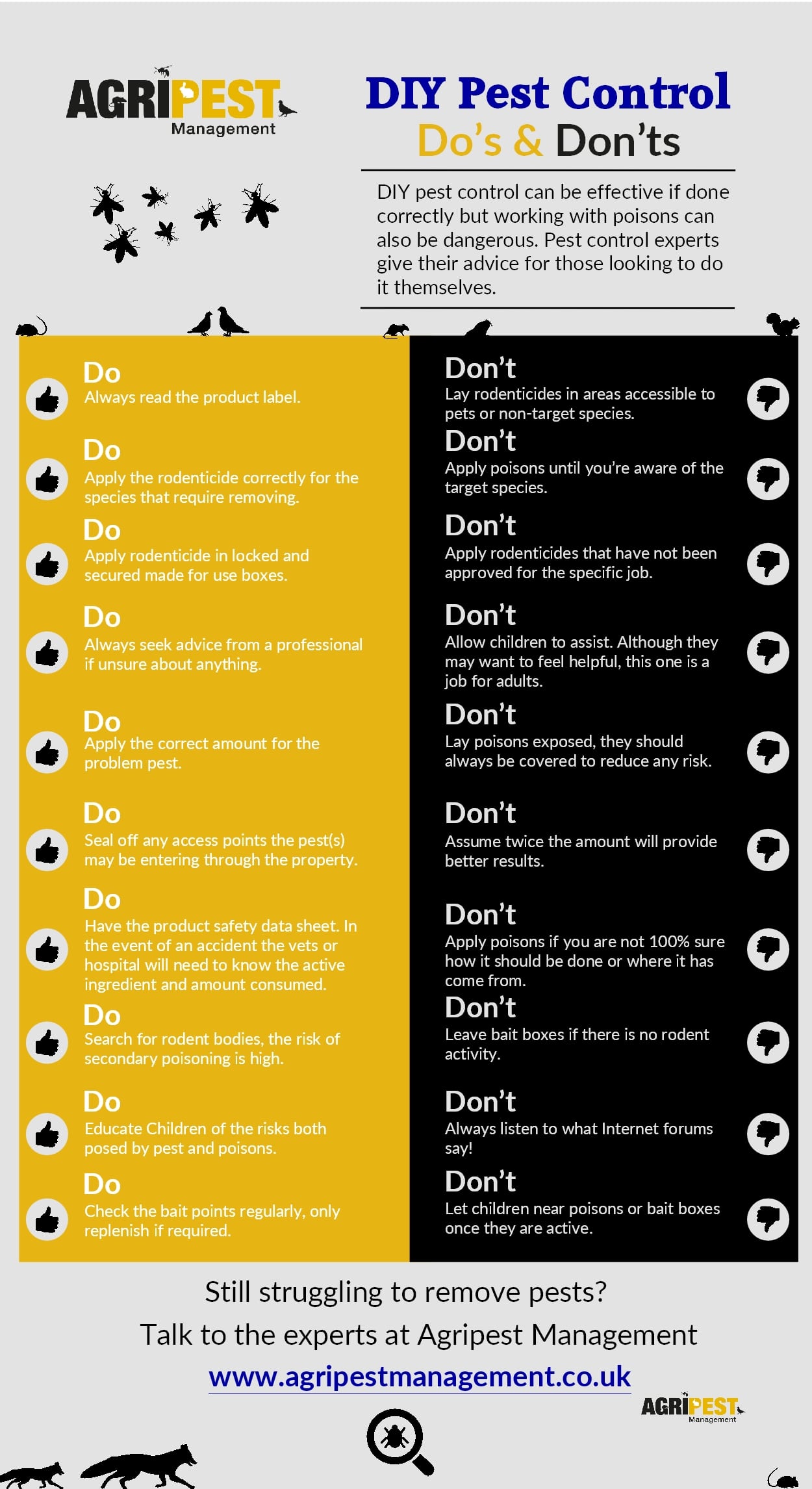Exploring Advanced Methods Utilized By Parasite Administration Professionals
Exploring Advanced Methods Utilized By Parasite Administration Professionals
Blog Article
Content Author-Winther Carpenter
Are you tired of counting entirely on sprays to deal with parasites in your home or office? While sprays can be effective, pest control professionals have established sophisticated techniques that go beyond merely splashing chemicals.
These techniques not just supply much more efficient and durable remedies, yet also focus on decreasing using unsafe chemicals. By checking out these innovative strategies, you will discover a whole new globe of pest control methods that are not just effective, yet likewise eco-friendly.
So, are you prepared to take your bug control game to the next level?
Integrated Parasite Monitoring (IPM)
If you're searching for a reliable and environmentally-friendly approach to pest control, Integrated Parasite Management (IPM) is the service you require. IPM focuses on long-term prevention and monitoring of parasites, rather than simply counting on chemicals. Highly recommended Online site thinks about the certain demands and behaviors of parasites, along with the surrounding atmosphere.
By utilizing a combination of strategies such as organic control, habitat adjustment, and targeted pesticide usage, IPM aims to reduce the dependence on chemical therapies and lessen harm to non-target microorganisms.
One crucial facet of IPM is checking and identifying insects precisely. This entails frequently inspecting and examining the pest populace, in addition to identifying the particular varieties existing. By comprehending the biology and actions of insects, bug control experts can create targeted methods to disrupt their life process and lower their numbers.
One more essential aspect of IPM is making use of non-chemical control techniques whenever possible. This can consist of physical obstacles, such as setting up displays or securing splits and openings, to avoid pests from going into buildings. In addition, cultural methods, like proper sanitation and waste management, can help get rid of insect food resources and breeding grounds.
When chemicals are essential, IPM focuses on using them deliberately and as a last hope. This indicates selecting the least poisonous and most reliable alternative, applying it exactly and only to influenced locations, and following all security guidelines. By decreasing pesticide usage, IPM lowers the possible threats to human health and the setting.
Biological Control
To even more boost the effectiveness of Integrated Pest Monitoring (IPM), the next subtopic we'll check out is the method of biological control. https://howtoremoveraccoons40617.dbblog.net/57776215/5-indications-you-required-to-call-bed-pest-insect-control-specialists makes use of all-natural predators or parasites to manage parasites.
Right here are four key aspects of biological control:.
1. Introduction of all-natural adversaries: In this method, useful insects or organisms are presented to the location ravaged with parasites. These natural adversaries prey on the bugs, helping to decrease their populace.
2. Preservation of all-natural opponents: Instead of introducing new microorganisms, this approach focuses on developing an appropriate setting for existing valuable pests. This can be attained with offering food, sanctuary, and water sources.
3. Augmentation: Right here, the variety of natural adversaries is increased unnaturally by reproducing and launching them right into the infested area. This assists to swiftly lower the pest populace.
4. Push-pull strategy: This method incorporates repellents and attractants to adjust the habits of insects. Repellents press pests far from plants, while attractants tempt them towards trap crops or locations where they can be quickly regulated.
Environment Alteration
Habitat alteration plays a vital function in bug control by modifying the environment to prevent pest problems. By making changes to the physical attributes of a space, you can create an unwelcoming setting for bugs, making it harder for them to endure and prosper.
One typical method of habitat adjustment is removing or lowering possible food sources for pests. This can consist of correct waste management, securing containers, and tidying up food crumbs.
Furthermore, getting rid of or reducing locations of standing water can help regulate insects like insects.
Transforming the landscape by trimming trees and shrubs far from structures can likewise avoid insects from accessing your property.
Verdict.
So there you have it - the sophisticated methods used by bug control professionals go beyond just spraying chemicals. Integrated Insect Monitoring (IPM) incorporates various techniques to efficiently control pests, while organic control harnesses all-natural opponents to maintain pest populaces in check.
Habitat alteration also plays an essential duty in avoiding bug problems.
Did you know that according to a research study, executing IPM methods minimized chemical usage by an average of 71%? This not just secures our health and the environment yet likewise saves money in the future.
